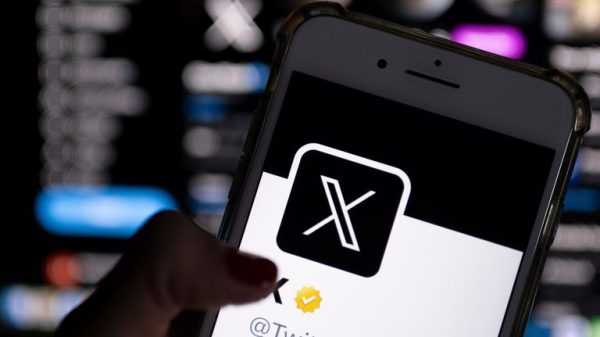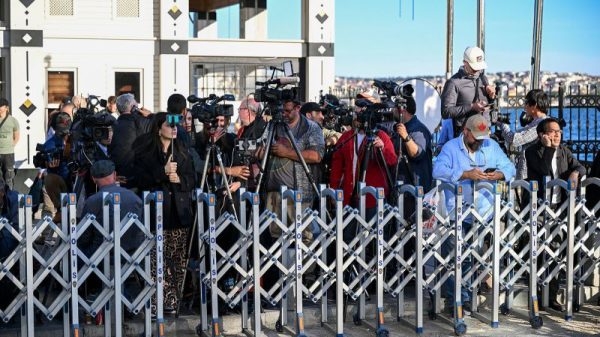Israel carried out part of its device attack targeting Hezbollah by concealing explosives inside the batteries of pagers brought into Lebanon, according to two high-ranking Lebanese security officials, who said the technology was so advanced that it was virtually undetectable.
Lebanese security officials watched a series of controlled explosions of some of the weaponized pagers, as investigations into who manufactured the wireless communication devices and how they made their way into Hezbollah’s pockets continued.
The pagers used in the controlled explosions were switched off at the time of the attack on September 17, which meant they did not receive the message that caused the compromised devices to detonate. The officials had a front-row seat to see just how catastrophic the blasts would have been to those carrying the devices and others around them.
Thousands of explosions struck Hezbollah members last week, targeting their pagers on Tuesday, and then walkie-talkies a day later. In all, the blasts killed at least 37 people, including some children, and injured nearly 3,000, according to Lebanese health authorities, many of them civilian bystanders. The attack blindsided the group, which had opted for analogue technologies after forgoing cell phones to avoid Israeli infiltration.
An improvised explosive device has five key components: A power source, an initiator, a detonator, an explosive charge and a case to put it all in. Sean Moorhouse, a former British Army officer and explosive ordinance disposal expert, said that only a detonator and explosive charge would have been needed to weaponize the pagers, which already have the other three components.
“It had to be done in such a way to make it invisible,” Moorhouse said, adding that one way to do that could have been modifying the battery itself – implanting an electronic detonator and small explosive charge inside of its metal casing, which would have made it impossible to detect with imaging, for example X-rays.
Other experts who reviewed footage of the blasts also said that explosive devices appeared to have been hidden in the pagers, suggesting a sophisticated supply chain attack involving a state actor.
That tallied with initial assessments by Lebanese authorities. Lebanon’s mission to the United Nations said in a letter sent to the UN Security Council last Friday that a preliminary investigation found that the communications devices were implanted with explosives before arriving in the country, tampered with “in a professional way” by “foreign entities.”
Mysterious supply chain stretches from Taiwan to Hungary
Multiple photos from the aftermath of last week’s attacks in Lebanon show remnants of the exploded pagers – also known as beepers – that were consistent with a model made by a Taiwanese firm, Gold Apollo, and fragments of walkie-talkies identified as the make of a Japanese firm, ICOM.
Lebanese authorities have said that the devices used in the attacks were Gold Apollo Rugged Pager AR-924 pagers and ICOM IC-V82 walkie-talkies. Both Gold Apollo and ICOM have distanced themselves from the compromised devices.
ICOM said that the IC-V82 model was discontinued a decade ago, and it could not determine whether the devices targeted in Lebanon were counterfeit or shipped from its company. Counterfeit versions are widely available for purchase on e-commerce websites, like Alibaba. Lebanon’s communications ministry said the IC-V82 radios used in the attacks were not supplied by a recognized agent, were not officially licensed and had not been vetted by the security services.
International investigative efforts have largely zeroed in on the Gold Apollo AR-924 pagers – tracing the model’s licensing and manufacturing from Taiwan to apparent shell companies to try to establish how the Israeli operation may have been carried out. The New York Times reported, citing three intelligence officers briefed on the operation, that Israel had set up at least three shell companies to disguise the identities of those making the pagers – Israeli intelligence officers.
The chairman and founder of Taiwan-based Gold Apollo, Hsu Ching-kuang, was questioned by Taiwanese prosecutors last Thursday before being released.
Wu set up a company called Apollo Systems Ltd in April of this year, listed under a Taipei address that appears to be a co-working space, according to corporate records. It is not clear if Wu was operating for BAC Consulting in Taipei under her new company name, Apollo Systems Ltd.
In December 2022 and February 2023, a YouTube channel for Apollo Systems HK uploaded two videos of the Gold Apollo AR-924 pager touting its “high-capacity lithium rechargeable battery” and other features. On its YouTube channel and website, Apollo Systems HK said that it had acquired the “sole distribution rights” to Gold Apollo pager systems. It also listed the AR-924 model as a product available for purchase.
Customs records in Taiwan, cited by the officials, showed that Gold Apollo shipped more than 20,000 pagers from Taiwan to the United States in the first eight months of 2024. More than 5,000 pagers were shipped to Hong Kong, while more than 3,000 pagers were shipped to Australia.
The Taiwanese officials said they had also checked the order history and the source of raw components for Gold Apollo pagers, adding that pager manufacturing was tightly controlled in Taiwan and that devices undergo regular inspections.
The Taiwanese prosecutors’ office is reviewing documents it obtained from Gold Apollo’s office. In a statement last Thursday, the prosecutors’ office said that there had “been no evidence found so far to suggest any involvements (sic) of Taiwanese nationals in the explosive terror attack.”
Investigations into the supply chain are also ongoing in Europe, where authorities are probing the Hungarian company, BAC Consulting, and another firm linked to Bulgaria and Norway, for any connections to the pager attack targeting Hezbollah.
There is no record of Gold Apollo exporting any pagers to Hungary in 2023 or 2024, the two Taiwanese officials said, citing custom records in Taiwan. In 2022, the company exported about 200 pagers to Hungary, they added.
Hungarian intelligence services have interviewed Bársony-Arcidiacono several times as part of their investigation into BAC Consulting but have not found any evidence that the pagers used in the attack were manufactured in the country, the government’s press office said in a statement. “The results have clearly established that the so-called ‘beepers’ were never present on Hungarian soil, and no Hungarian company or expert was involved in their production or modification,” it said.
Bulgarian authorities said they were investigating Norta Global Ltd after Hungarian media reported last week that the Sofia-based company was involved in the sale of the pagers to Hezbollah. Bulgaria’s national security agency DANS said that no pagers used in the attack were “imported, exported or manufactured in Bulgaria,” and that Norta Global Ltd had not carried out terrorist financing, or traded with anyone subject to sanctions. Bulgaria’s caretaker Prime Minister Dimitar Glavchev told reporters last Friday that the company under investigation was “a cash flow, mailbox-type of firm,” and that its director “acted by proxy.”
Hezbollah digs into devices’ supply chain
Hezbollah’s leader Hassan Nasrallah, in an address last Thursday, said that the militant group had formed multiple internal investigative committees to get to the bottom of what happened, vowing a “reckoning” for those responsible.
“Regarding the explosions, we have reached an almost certain conclusion, but we still need some time to confirm it,” Nasrallah said. “This entire matter is under thorough investigation and review, from the company that sold the devices, to manufacturing, transportation, arrival in Lebanon, and distribution, all the way to the moment of the explosion.”
He added that while the apparent goal of the attack was to kill as many senior Hezbollah officials as possible, much of the leadership had been unaffected because they were carrying older pager models, suggesting that the form of communication has been used by the group for some time.
“These attacks represent a new development in warfare, where communication tools become weapons, simultaneously exploding across marketplaces, on street corners, and in homes as daily life unfolds,” UN human rights chief Volker Türk told the Security Council last Friday. “Authorities have reportedly dismantled unexploded devices in universities, banks, and hospitals.”
He added that simultaneously targeting thousands of people – whether civilians or armed forces – without the knowledge of who is in possession of the targeted devices and their surroundings at the time of the attack, violates international human rights law.
Iran’s delegate to the UN said that Israel had intended to kill at least 5,000 civilians, but some devices were deactivated or not distributed. The delegate said that Israel had again “crossed a red line,” noting that Iran’s ambassador to Lebanon was among those injured.
Senior UN officials warned that the devices attack marked a turning point, calling for de-escalation and a ceasefire in Gaza before a war consumes the whole of the Middle East. Others said that the technology apparently used marked “dangerous new territory” in the world of warfare.



























